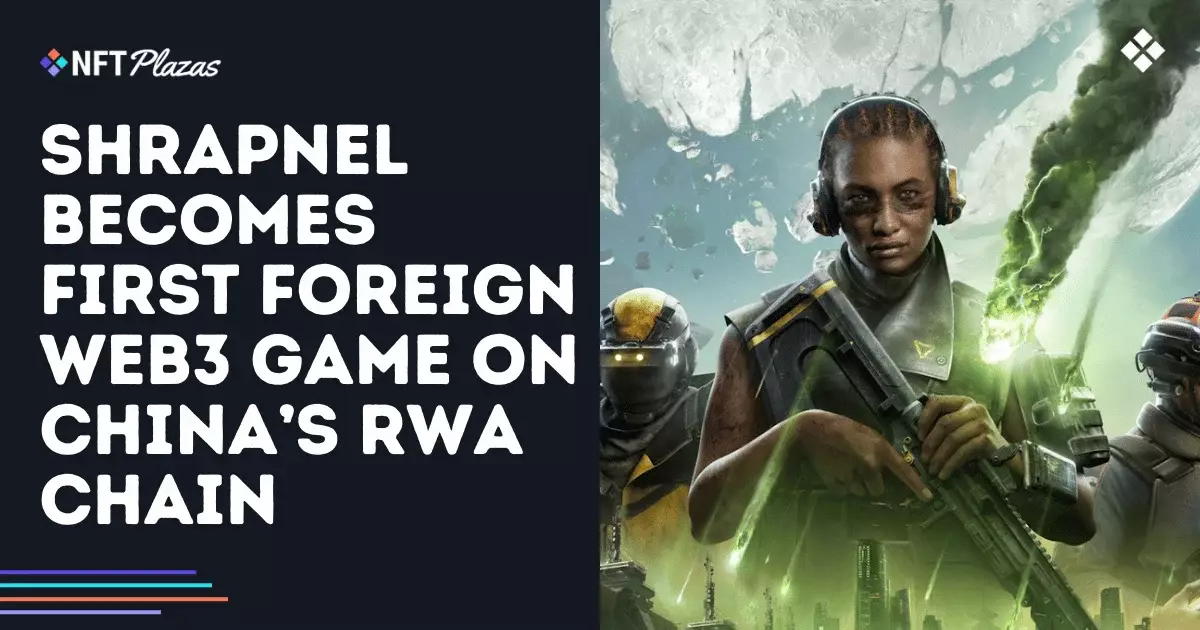The gaming industry is no stranger to innovation, yet few developments provoke excitement quite like Shrapnel’s recent approval to operate on China’s state-backed RWA Copyright Chain. This isn’t merely a footnote in the annals of gameplay; it’s a strategic and groundbreaking maneuver into a monumental market worth over $40 billion. For gamers and investors alike, this is a watershed moment that has the potential to redefine the fabric of not just gaming, but the very essence of digital asset ownership in an era where regulations often stifle creativity.
Understanding The Implications
Obtaining this license grants Shrapnel access to one of the world’s largest gaming arenas — a place notoriously hesitant to embrace blockchain technologies, especially when delicately interwoven with decentralized finance. By successfully navigating the regulatory maze, Shrapnel sets a profound precedent that could pave the way for future collaborations between Western companies and China’s regulated framework. This isn’t simply about compliance; it’s about opening doors that were once thought sealed shut by a stringent policy environment.
Central to Shrapnel’s approach is the localization of the gaming experience. Unlike its global counterpart, the Chinese version will involve the creation of a specialized game launcher that is tailored to local preferences, extending even to asset verification through the RWA system. Such dynamics promise to deliver a repository of legitimacy for in-game items, allowing players not just to play but to trade and own digital assets with legal backing. Imagine acquiring a rare skin or exclusive gear that can transition from gameplay into a legitimate asset — this has monumental implications for how digital identities can materialize in the global economy.
Partnerships and Compliance: A New Approach
The collaboration with Lingjing Game Labs, an arm of the People’s Daily, signifies a strong endorsement from the state, adding credibility that only encourages further exploration of this emerging market. Industry insiders must recognize that this is not merely a cooperation; it’s an intricate dance with regulatory bodies designed to ensure that Shrapnel adheres to national standards while reaping the benefits of a vast audience.
Critically, while the enthusiasm surrounding Shrapnel’s debut in China is palpable, it’s essential to remain cautious. This movement does not suggest that a broader liberalization of Chinese policy is imminent. Instead, it underscores a carefully curated opportunity for compliant cross-border trade that mirrors national interests. The key question emerging from this shift is whether this model can be replicated by other Western entities aiming for a toe-hold within China’s lucrative but complex regulatory environment.
Shrapnel’s success may herald a new era for foreign digital products, redefining market strategies while still operating within the boundaries set by Chinese authorities. This signifies that while China tightens its grip on certain sectors, it simultaneously opens a window for innovation that aligns with its overarching objectives — a paradox that could lead to unprecedented dynamics in global digital economies.
In this new world of gaming, the conversation must evolve from mere gameplay to one that encompasses legal frameworks, asset literalizations, and cultural adaptations, urging us all to pay attention to what’s next in this fast-paced arena.

